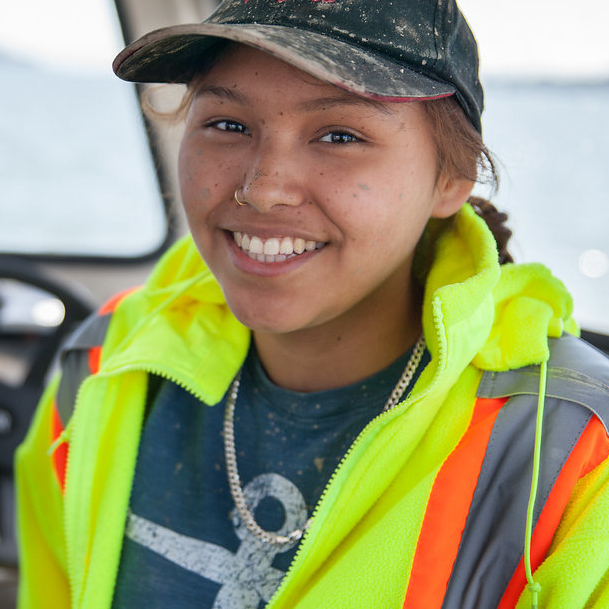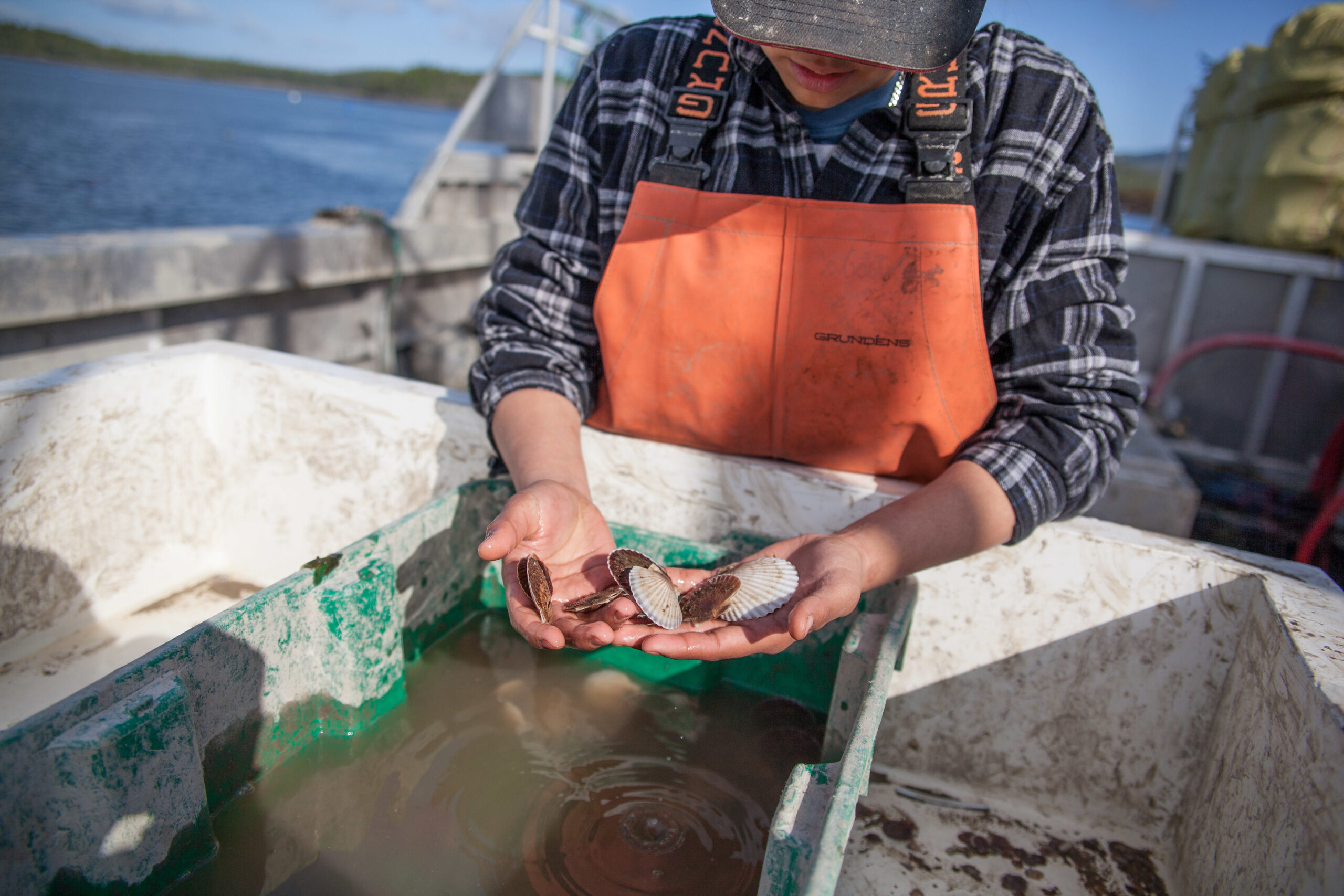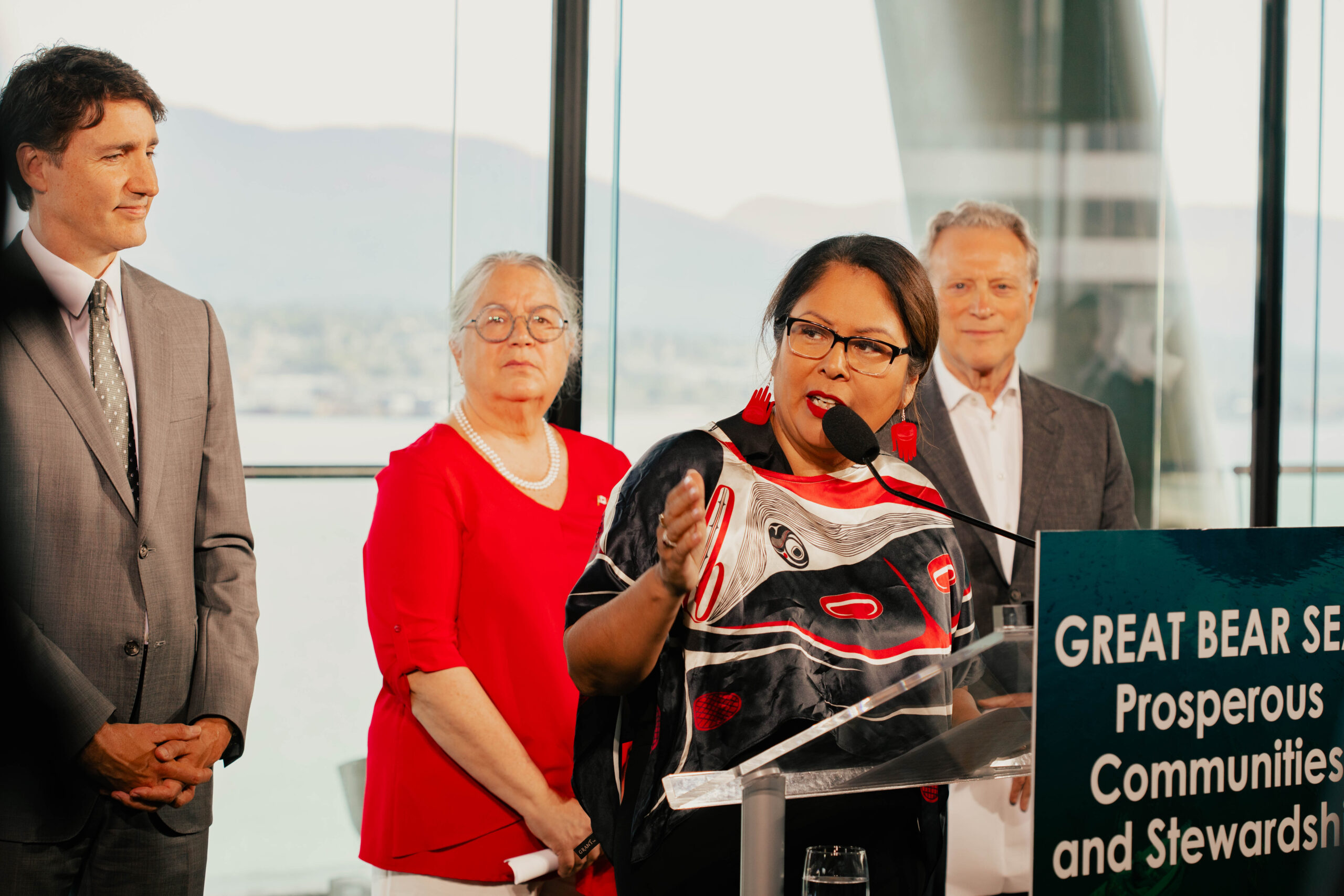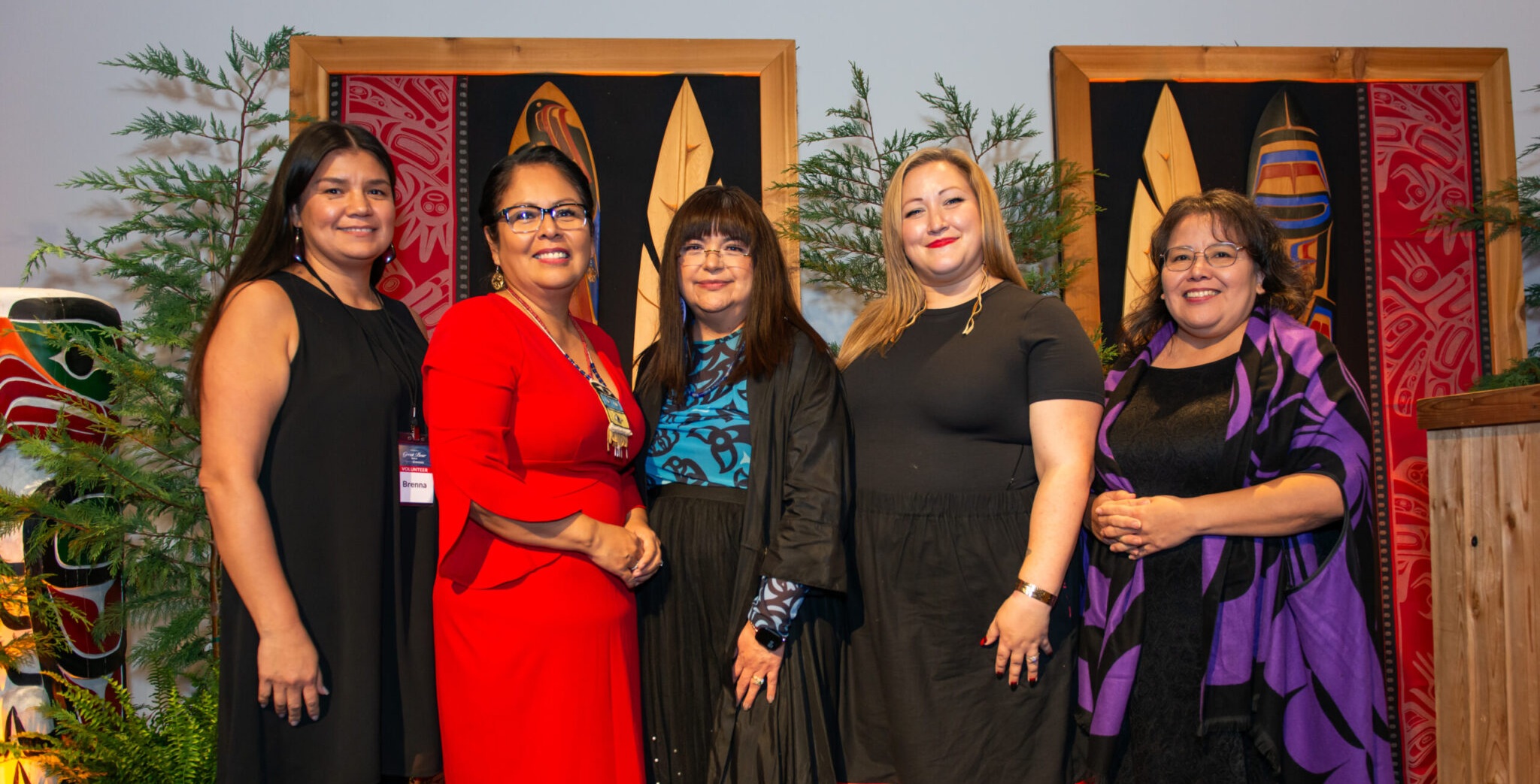Coastal Shellfish, a bustling First Nations-owned aquaculture facility in Prince Rupert, may produce loads of fresh, tasty Great Bear Scallops, but the positive spin-offs from this operation go far deeper.
“Our mission is not just to restore economies for First Nations, but to restore the ocean as well,” says Michael Uehara, Coastal Shellfish CEO and President. “It’s about building a sustainable fishery, but it’s also about food security and long-term restoration.”
Uehara says that the company’s profits will flow back to the local community, and that year-round work to run the operation will provide great long-term job prospects as well. The facility currently employs about 40 staff—70 percent of them First Nations—and the number of full-time employees is expected to grow to 80 or 100 people once it’s in full swing.
Although efforts to re-establish sustainable fisheries along the coast have been ongoing for decades, the seeds for Coastal Shellfish go back about 15 years—to the early days when CFN-GBI was still called the Turning Point Initiative. Given his extensive background in sustainable businesses, Uehara was on the committee tasked with looking into the marketability of shellfish aquaculture in the region, and he and others saw a clear need for the ethically-sourced seafood that has finally come to fruition.
Coastal Shellfish is one of three sustainable operations—along with Great Bear Rainforest Essential Oils and the Great Bear Carbon Credit Corporation—that are part of the Great Bear Business Corporation. Incorporated in 2009, the regional business entity was created by the seven-Nation alliance that make up Coastal First Nations, and was designed to help usher in a conservation-based economy throughout their ancestral territories.
“This goes right back to the historical DNA of Coastal First Nations,” says Uehara. He adds that the leaders of coastal First Nations, who spearheaded the Great Bear Initiative, recognized early on that it wasn’t enough to just protect their home in the Great Bear Rainforest through conservation—they also had to rebuild conservation-based economies to support their communities long-term.
Uehara says those leaders focused on cultivating key industries, such as ecotourism and sustainable fisheries, that would provide meaningful employment and improve community well-being. “The goal was to create non-extractive, sustainable businesses that would bring First Nations back to the ocean,” says Uehara, and to do so without depleting natural and cultural resources for the sake of future generations. These businesses, he adds, would also generate increased revenues to support future stewardship activities and efforts leading to self-determination.
True to that guiding vision, Coastal Shellfish is more than just an aquaculture operation. Not only do they seed, grow and harvest the shellfish locally, says Uehara, they also process everything in Prince Rupert—meaning more jobs for the community, and reduced shipping costs and carbon footprint as well. The innovative operation combines modern technology and best practices with the traditional knowledge of Coast Tsimshian people, who have lived and harvested in the region for millennia.
But Uehara and the Coastal Shellfish team are not content quite yet. “We’re going to take the business beyond scallops for sure,” he says. “We’re establishing an industry, not just a company.”



